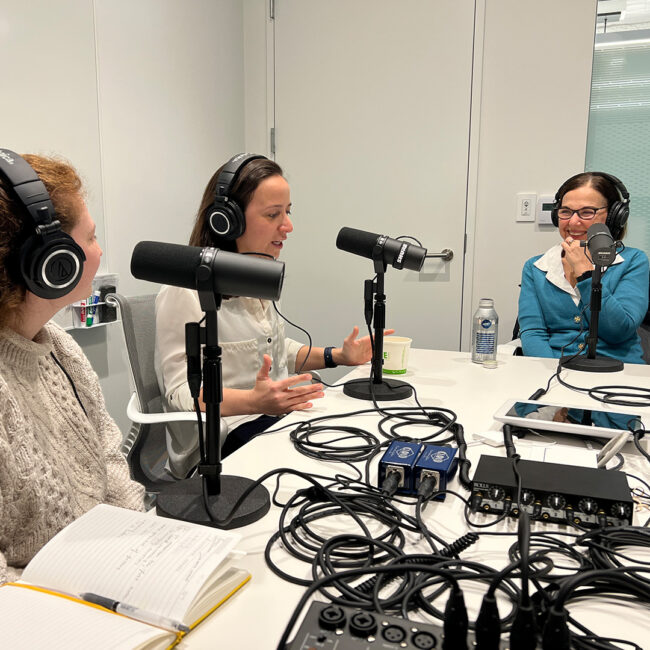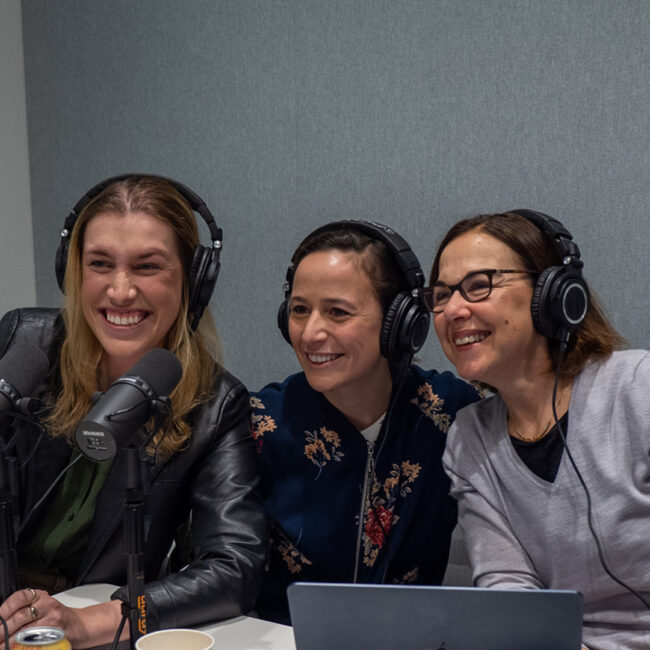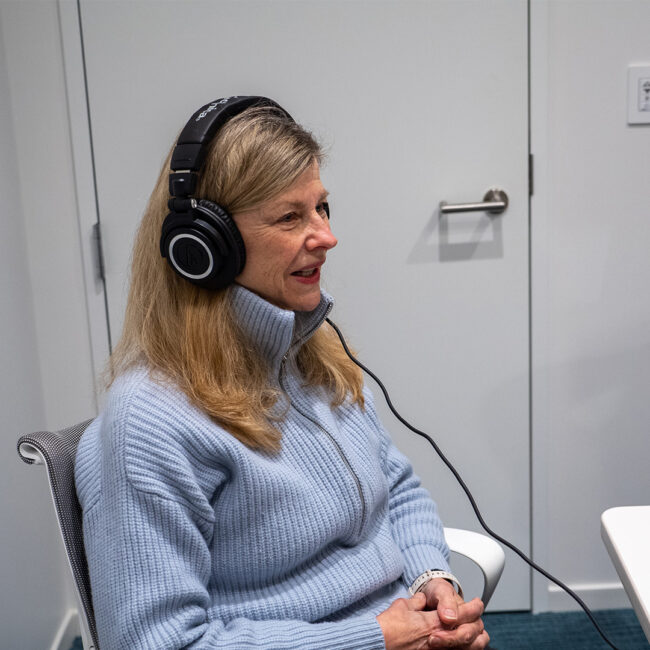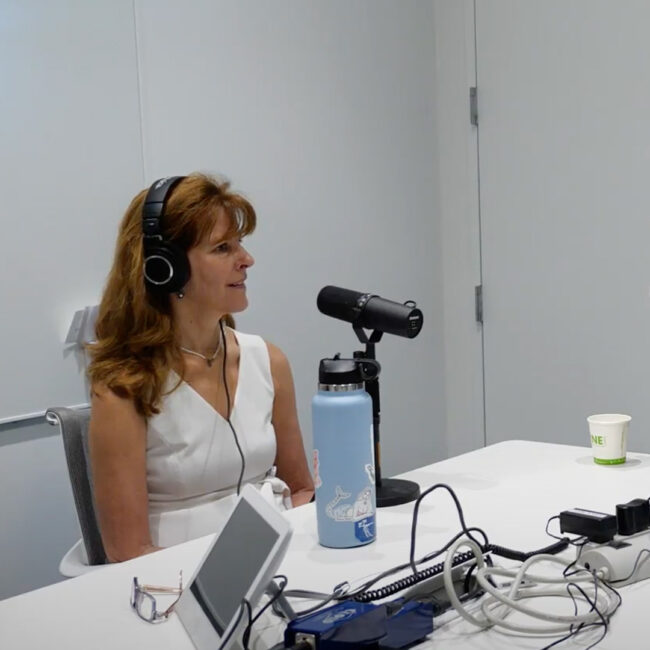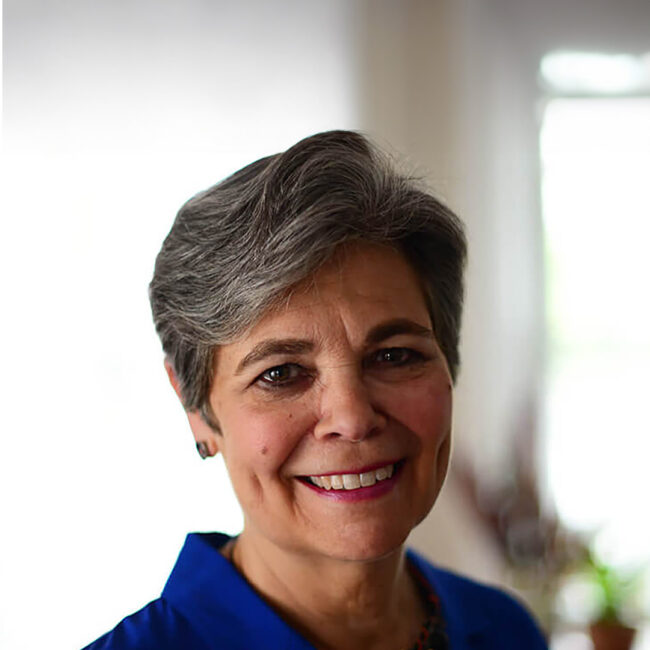
Parent Guidance for Cancer Survivors: A Conversation with Paula Rauch
Episode Transcript:
Lidia Schapira:
Welcome to Health After Cancer. I'm Lidia Schapira. With me in the studio today is Elle Billman. Hi, Elle.
Elle Billman:
Hey, Lidia.
Lidia Schapira:
Elle and I are happy to have Dr. Paula Rauch. She's our guest today. Dr. Rauch is a child psychiatrist in Boston at Massachusetts General Hospital where she's also the founder of a parent guidance program. Paula has been my friend and my go-to person for any parenting question, both for parenting my own kids, but more importantly, for giving advice to many of my patients who are going through cancer treatment while parenting young kids at home. We've also asked Paula to tell us a little bit and teach us how to come back to some cancer conversations. Perhaps some families never had them, and now as the kids are getting older, some of these topics need to be aired. Paula, thank you and welcome to our show.
Dr. Paula Rauch:
Thank you so much for having me.
Lidia Schapira:
We're delighted. I know that you bring not only decades of experience, but also your personal experience as a mother and now grandmother. Is that right?
Dr. Paula Rauch:
That is true.
Lidia Schapira:
One of the things that has impressed me, Paula, in working with you for 14 years at MGH together and reading your work is how much you stress the importance of open communication in families. Can you talk a little bit about that?
Dr. Paula Rauch:
Absolutely. Communication is probably one of the most important ingredients for supporting resilience, and it is sometimes very, very hard to deliver hard news, but by talking with children about what's going on around them, one really helps them to cope. It makes things less confusing. It delivers the message. As you've heard me say so many times, Lidia, if you can make it talkaboutable, then you invite your child to ask you questions and you have the opportunity to weigh in and help them to make sense of what's going on around them. That pre-processing or that working together, facing challenges together, that builds life skills.
Lidia Schapira:
I've also heard you say that it's so important to model this for children because when they become adolescents, we want them to tell us, the parents, what's going on in their lives.
Dr. Paula Rauch:
Absolutely. If you give your child the message that if something is too hard or might be a little upsetting, that it's okay not to share it, gosh, put on your seatbelt for their teenage years because they'll be doing things and knowing about things that they know would maybe make your hair stand on end, and those are exactly the things that you so much want them to share with you. Even if sometimes when you're hearing it, you're thinking, "Oh, maybe I wish I wasn't hearing it," but in all seriousness, that's really how you can keep your child safe and engaged by hearing just those hard things.
Lidia Schapira:
I remember you also saying, Paula, that it is important to name cancer instead of using euphemisms. Why is that?
Dr. Paula Rauch:
Euphemisms are confusing. In part, when a child hears that a parent is just sick or has a lump or a bump or a booboo, they themselves are going to have people say to them, "Oh, are you sick today?", or another family member is sick and a child may be left to worry that every kind of illness, an ear infection or a stomach ache, could be as serious as cancer or involve hospitalization or any number of other symptoms, so it's confusing in that way and more anxiety provoking. The other piece is that by naming something, it's probably the beginning of and such an important invitation. It's a way of saying, "This has a name. We can talk about it just like we talk about other things," and inviting children into those conversations is incredibly important.
Lidia Schapira:
In my practice now that I see a lot of breast cancer survivors, I often hear women tell me that their children were too little when they were treated. They might have been babies or toddlers, preschoolers, and now many years have passed and they're fine, so why bring it up?
Dr. Paula Rauch:
I usually am encouraging parents to talk to their children even when they are, in quotes, "too little," so if your child is talking as far, as I'm concerned, and there's cancer in the family, talk about it, but it's true that how you talk about it and when it's now five or 10 years in the past, it may seem difficult to talk about it again. Even if you did talk about it with your child at three, the conversation's going to be different at 13, so a parent could look for a natural opportunity to talk about it when they're going in for a follow-up scan, when someone on TV is talking about it, when there's a pink ribbon campaign and say, "You might not remember," or "Do you remember?", pull out your album if you have some photographs.
We're constantly, all of us, rewriting our autobiographies, what our life story is. Get in there as a parent and talk about the parts of your child's life that he or she may not remember so clearly. Make this part of their life so there isn't a sudden aha moment that can sometimes feel like a betrayal like, "How could you not have told me about this?", or a child overhearing the parent telling somebody else and going, "What? All these other people knew that you had cancer when I was three and you never told me?"
Lidia Schapira:
The other very important lesson that you taught me, Paula, is how important it is to know the child's age and developmental age, that the conversation with a seven-year-old is going to be very different from a conversation with a teenager. Can you tell us a little bit about that and where a parent may find some information or guidance about just how to have an age-appropriate conversation?
Dr. Paula Rauch:
Yeah, absolutely. Like any big conversation or anything that you're doing as a family, if you go on a trip or planning a trip, you might describe it differently for your child who's four in terms of when you let your child know you're going on a trip or how you're talking about it. I use that example because the goal for parents is actually to be themselves when they're talking about cancer, not make it something that is talked about in a hush tone or some way that's so different from how they talk about everything else because that makes it seem more scary and more troubling, so I often say to parents, "Well, how would you talk about if you needed to have surgery on your ankle or you were going on a trip? Think about how do you communicate about those other things so you can be really yourself with your child."
Then getting back to the question you asked me, with a three-year-old or a four-year-old or a five-year-old, it may really be naming the cancer. We often talk with kids and give the simple explanation that your body's made up of trillions of teeny weeny little cells that are too small to see without a microscope that are like Legos and cancer cells are mixed up Legos that don't fit together and can't do their jobs, and all of our treatments are to get rid of those mixed up Lego-like cells. That's the beginning of a perfectly good conversation for a child that age, and then watching for their play, making sure that they don't feel somehow that they did something that made the parents sick.
Thinking about the fact that preschoolers are egocentric, they can only imagine themselves as the center of every story, and so they may feel to blame, so watch a child's play, and if you see them or they ask a question that suggests that they think that they were too noisy or they jumped on you or banged into you in some way and that was the cause of the cancer, you want to clarify that and take care of those miscommunications. As kids get a little bit older into elementary school when they're all about rules ruling and facts, simple explanations are going to be helpful, and again, asking kids what they wonder about. That same Lego description works pretty well for a seven, eight, and nine-year-old. Frankly, I've had many adults say to me, "I love that description. Now, I understand it a little bit better myself."
One of the things that is central for elementary school kids is facts and fairness, so it's common for kids to say, "Well, it's not fair. This person who isn't as nice as you didn't get sick, or this person who doesn't eat their vegetables as well as we do, didn't get sick. How come?" It's part of a conversation about what are the things you can control and what are the things that you can't around fairness. Particularly, I think for elementary school children, for people who are still in treatment, you really want to clarify for them what's a symptom of the treatment as compared to what's a symptom of the cancer. Grown-ups are confused about this often too. Then with teenagers, it's a different conversation.
Lidia Schapira:
Let's talk a little bit about the teenager, but now the teenager who is the patient. I'd love for Elle to tell you a little bit about her story as she's struggled, and she's told her own story on this show before, about this idea of who owns her cancer information since she was treated as a young child.
Elle Billman:
Yeah, I'm so excited to get your perspective on this, Paula. I was diagnosed with leukemia when I was very young. I have very few memories of my cancer diagnosis and when I was actively treated. Even though my cancer story begins there, I feel like my actual experience with my cancer survivorship begins much later when I was an adolescent, especially a later adolescent, when I started to really look into my cancer history, understand my diagnosis, how I was treated, in part because I was dealing with some late effects, but also in part because I wanted to know about my future and how being treated for cancer could impact my future health.
Since I was a teenager at the time, I was less interested in having open, honest conversations with my parents and instead wanted to figure it out on my own. In hindsight, I recognized that talking to my parents would've been probably the best step for me to take, but because I went at it in trying to figure it out by myself, I kind of ran into a lot of road blocks and had some frustration in trying to learn about myself and not being able to.
Dr. Paula Rauch:
I'm going to say I think you actually did well to go on your own adventure in trying to understand this. I'm sure your parents would've had a wonderful perspective and could have added to it, but I think it's a wonderful adolescent approach to want to own your experience, to take in the information even when there are barriers to getting that information, and not see this experience, when you're a teenager, not see it so much through your parents' eyes, but begin to see it through your own, so kudos to you for doing that as a teenager. There are so many things that we do as teenagers that we might look back on and say, "Wow, that was not the easiest way to get there," but often there's a lot of benefit from getting there the hardest way.
Elle Billman:
Yeah. I appreciate that perspective. I'm curious if you could talk about or give any tips on communicating especially when there's uncertainty. I think that's really common in survivorship because you know you can have all sorts of late effects from the treatments you were given, but maybe you won't, so if you have any tips on just talking about topics that are kind of rooted in uncertainty?
Dr. Paula Rauch:
Yeah, so I think often when one asks people what's the hardest thing about any kind of treatment, it's uncertainty. It is also part of life for all of us. I think along the way, as people are getting older and having more experiences, they have to begin to learn individually what are the things that help them to cope better? There are people who want to know every possible thing that can go wrong, and that gives them a sense of, "Okay, now that I know what might be out there in the unknown, I feel more secure," and other people are like, "Hey, you know what? I'm a need-to-know person. If I'm not having a problem, I want to know minimally what I need to do to be safe, but beyond that, I'm not so interested." Some of it is having someone take their own pulse of how do they cope best, what helps them to reestablish a sense of positivity related to their own body.
Cancer or any illness is a little bit of a betrayal when your body attacks you from within and thinking about what are the things that help you to regain your confidence. I also think because we know that our bodies remember things that sometimes our minds don't, many of the teenagers that I have known over the years who were treated before age five, they have body memories that no one explained to them that they might have. I don't know at all if this is your experience, but it has been for other people. If they get an illness in which they're nauseated, they get more anxiety because they have a body memory of having been very nauseated during treatment, but they don't necessarily make the connection and sometimes demystifying that and saying, "Hey, even though you don't remember your leukemia treatment at 18 months," I'm thinking of someone in particular, "your body does," and there was a lot that went on during that time, and so you're feeling that that anxiety.
Sometimes, smells also can evoke a ton of memory. One of my colleagues would tell the story that he treated someone in early childhood for a cancer. She saw him in the grocery store 10 or 15 years later, was so excited, ran up to him, and as soon as she got close to him, she threw up and she was mortified, and he felt bad too, but he was so associated with nausea for her. Great affection, but also nausea. It's just a reminder of all the things that go on within us that aren't necessarily in our conscious memories.
Elle Billman:
Yeah. I just started reading The Body Keeps the Score, and what you were saying is really reminding me of everything I've been reading in that book so I'm excited to keep reading it. I do have one story about smell and how it kind of jogged a memory for me. When I was a senior in college, I was working as a research assistant in CVICUs and I had gone into a patient's room and was using an alcohol wipe to clean a device that I was using, and that smell really took me back. Well, it didn't really take me back, but I had a response and my body was like, "I know this smell," so that was interesting. As I continue my career in medicine, it'll be exciting maybe or just kind of an experience for me to continue seeing if there are other things that jog my memory or my body's memory.
Dr. Paula Rauch:
What a great gift to your future patients.
Elle Billman:
Yes.
Dr. Paula Rauch:
What better than to have a trail guide who's been there before and knows these are the kind of little things that come with lived experience. There's all kinds of learning, but that learning that comes from lived experience that's really in the details, the stuff that helps somebody to know that you really get it, it's so valuable. Your patients are lucky.
Elle Billman:
Thank you.
Lidia Schapira:
We've also heard from Elle's mom on this show, and we've heard from other parents who talk about the trauma that they experienced when they had to hold a child down for a painful procedure, or perhaps the guilt and sorrow they experienced for about having to be away from their other children while they devoted often years of their life to really being at the side of a child being treated. Can you talk a little bit about what advice we can offer these parent survivors?
Dr. Paula Rauch:
I think just to acknowledge what an incredibly difficult challenge they have to be... It's like a Sophie's choice being pulled in multiple directions and feeling regret in not being able to be in two places or three places at once. I think the data on PTSD for parents that walk into medical environments and see their child in an ICU is more... The PTSD rates are higher than they are for people that have served in Afghanistan, just to sort of place in context how traumatic it is. It is important for all of us on the doctor's side or the medical side to really prepare parents when they walk in and see something for the first time. Similarly, siblings. I often say to the family members, "Take your cell phone and take a picture of what the person looks like, look at it small on a device, prepare yourself so that there's not so much shock." Shock is one of those things that's never good for integrating things.
Then I would say the same thing to parents that I say to everybody. Talking about it is so important. It's really important for the kids at home to know that if they were the one that was sick, that the parent would be doing the same thing with them. It's not that a parent prefers the child who's sick. It's that this is what we do when we love each other and one member of our family is sick, and not being angry at the child at home who feels jealous of the child who's sick. It's natural if the child who's sick is getting gifts and time and attention. It's important as a parent to say, "You know what? Your sister is so lucky that she's getting this and this and this, and that we're having this special time. She's not lucky that she's getting needle sticks and medicine that makes her feel sick and tired, but absolutely, I can understand why you feel upset about it."
Lidia Schapira:
Can you give us some more tips about how we can keep the family's life as normal as possible even when a sibling is being treated, or in the case that a parent is being treated and needs to be absent from the family dinner or just can't stand being around food?
Dr. Paula Rauch:
For all families, having regular routines and schedules are so helpful. Rituals also are great if every Sunday morning is pancake morning or Monday night is pizza night. The beauty of having regularity when things are uncertain, the things that you can count on are even nicer. Also, when someone is tired, when emotionally they're drained, you can push through and just... Choice making takes a lot of energy, so trying to keep those daily schedules and weekly routines in place and simplifying things. I often talked with parents about saying, "Okay, what are the four or five things that your kids will eat?" This is not a time to be Rachel Ray in 365 days and 365 meals. Monday can be pizza, Tuesday's, noodles, Wednesday's chicken, Thursday is breakfast for dinner, and Friday is takeout. Not having to make those decisions and having kids know what's coming next helps.
There's an age part of it too, so for the very youngest kids, meals and sleep time and schedules, who's going to be there at bedtime and when you wake up, those are the things that really matter to the very youngest kids. For elementary school things, think about their activities, being prepared for going to school. You really want to have the money for the school field trip or the magic markers that you need for a particular day. If things are hard at home, you don't want school to be a place where a grade schooler doesn't have what they need. So many of our kids are so busy with afterschool activities. Better to do fewer things, but do them consistently than to do a little bit of a lot of things. Then for teenagers, really over and over again, helping them to be a consultant to you as a parent about what would be helpful to them, what do we not understand about what a teenager's experience is. Let them speak for themselves.
Lidia Schapira:
Elle, do you remember talking about your cancer with your siblings, or any family discussions, or how the cancer impacted your life growing up?
Elle Billman:
I don't really remember having any specific conversations with my sisters. I have two sisters, an older and a younger. The youngest was six months, three months when I was diagnosed, and then the oldest was around five, so my older sister, I am sure, has more memories. No, we've never really had a formal conversation. It may be something that we would benefit from. I've been fortunate to speak with other childhood cancer survivors who are adults now, and they've shared that they still feel some tension with their siblings years and years later that are kind of rooted in their cancer diagnosis and how the siblings were treated when they were being treated for cancer, so I'm curious to hear if you have any recommendations for speaking to your siblings or having a family talk about a cancer experience when it's so far removed like maybe 15, 20 years.
Dr. Paula Rauch:
If you ask me, there's probably not any conversation that you would ask me, "What do you think about having that one?" I'd say, "Oh, no, don't have that conversation."
Elle Billman:
Sure.
Dr. Paula Rauch:
It sounds like a great idea to me. I think we're constantly reprocessing old experiences. Particularly where you think about your older sister who was five, it's hard to know how she remembers that time, but she might be quite surprised if together with your parents, she heard actually the logistics of what went on during that time. It's often kids have laid it down as memory but didn't realize that actually the hospitalizations were three weeks apart or there was a six-month period where there wasn't one. They may remember that the hospitalizations were all the time where they never happen during a particular time. It is helpful just to get the facts laid down and they become kind of a foundation for then all the emotions that go on around it.
The opportunity as a parent or as an adult yourself and now going into the field of medicine to say, gee, when you look back on it, is there anything that you wished had been different? That process of inviting somebody to share their individual perspective. Cancer is a family illness in the sense that everybody in the family is affected by it, just each person in their own individual way. The process of having that conversation validates the experience of both your sisters, the one who was too little to remember completely, but was born into a time when there was a major stressor in the family, and your older sister who may have disjointed memories of the time because she was still pretty young.
Lidia Schapira:
Paula, where can people go to find information if they're experiencing these kinds of situations where somebody in the family is so desperately ill?
Dr. Paula Rauch:
At any individual cancer center, there should be support people, a social worker, a few programs. Not as many as I would wish have a parenting program the way we do at the Mass General. I would invite people to go to our website, which is mghpact.org. There's about 100 pages of targeted information for parents. Cancer.net has information. I think there's also great benefit in finding a peer group. There's something really special about talking to other people who've had the same experience and even those of us that work in a helping profession the way I do as a child psychiatrist.
I think some of the smartest things that I'm able to share with parents, I learned from a different parent, so I think of myself as sort of the carrier of a discontinuous group that I'm bringing information from different people to the next person because they may not have a next-door neighbor or someone in their class or someone in their parents' group who has had the same experience. At least it's not quite the same as talking to another survivor, but at least I can share some of the wisdom that's been shared with me.
Lidia Schapira:
Paula, help us understand what advice to give parents who is debating about whether or not to talk to their child's teacher or the school authorities about something going on at home, something related to cancer. How should parents interact with schools?
Dr. Paula Rauch:
I think it's important to let teachers know always whether it's a preschool or elementary school. Middle school and high school, it's a little bit harder because there may not be one teacher to connect with, but figuring out who the right point person is important, and then letting the school know that, as a parent, one wants to know how one's child is doing, but also you want school to be a bit of an oasis so that you don't want people coming up to the child and saying, "Oh, how are you?", or "How's your mom?", during the day. You want school to be the fun place and the child center place that it always was.
If a child wants to go to a teacher, kids need to know, "Who can I talk to if I'm feeling upset?", so opening that conversation is also important to have a conversation with the school about what an individual family wants to have shared more broadly or not. I think sometimes school systems may have make the error of kindness of sharing information more broadly than a family would choose to have it shared, so a conversation about general information and a conversation about what's happening at home, and encouraging the school to keep things as normal as possible and let parents know if they're noticing anything of concern.
Lidia Schapira:
What are some of the most common questions that parents ask you?
Dr. Paula Rauch:
One of the common questions is, "Is this normal?" Very often, 90% of the time, I would say it's normal. Some of the content that parents may be seeing, for example, in their child's play, may have integrated aspects of cancer and cancer care into the play, but it's very normal. Then the question is, "When should I be worried?", or "Should I be worried?", and I would say if a parent is worried, I think parents know a lot about their own children. They see them over across time. Go talk to your pediatrician first. Check in with your child's teacher, talk to a counselor, but don't be afraid to ask.
Should you be worried? I don't know. What are the things that make me worried? Certainly, in older kids, when they are talking about hurting themselves or feeling hopeless, they stop doing things with friends, their appetite changes, sleep changes, all of those things would be worrying. I sometimes say to parents, "The time to seek help is when you're noticing something in your child that would worry you whether or not you have cancer or whether or not one of your other children has cancer. Trust your intuition. If you're worried, ask for help. Get a consultation from one of the available adults in your life."
Lidia Schapira:
Well, Paula, I can't begin to tell you how grateful we are for your wisdom, your time. I just love talking with you. I just remember that all of us used to go to you for parenting advice for our own families and for our patients. Thank you for everything you do.
Dr. Paula Rauch:
Thank you so much.
Elle Billman:
Paula, thank you so much for being on the show today. It was wonderful for me to get to listen to you and Lidia talk about parenting and also ask you some questions about how I processed my cancer history as a young adult and talked about it with my parents as well as my siblings. To our listeners, thank you so much for joining us today. As a reminder, you can find more information on the podcast at www.healthaftercancer.com. If you enjoyed listening to us today, please rate, follow, and subscribe to Health After Cancer wherever you listen to podcasts.
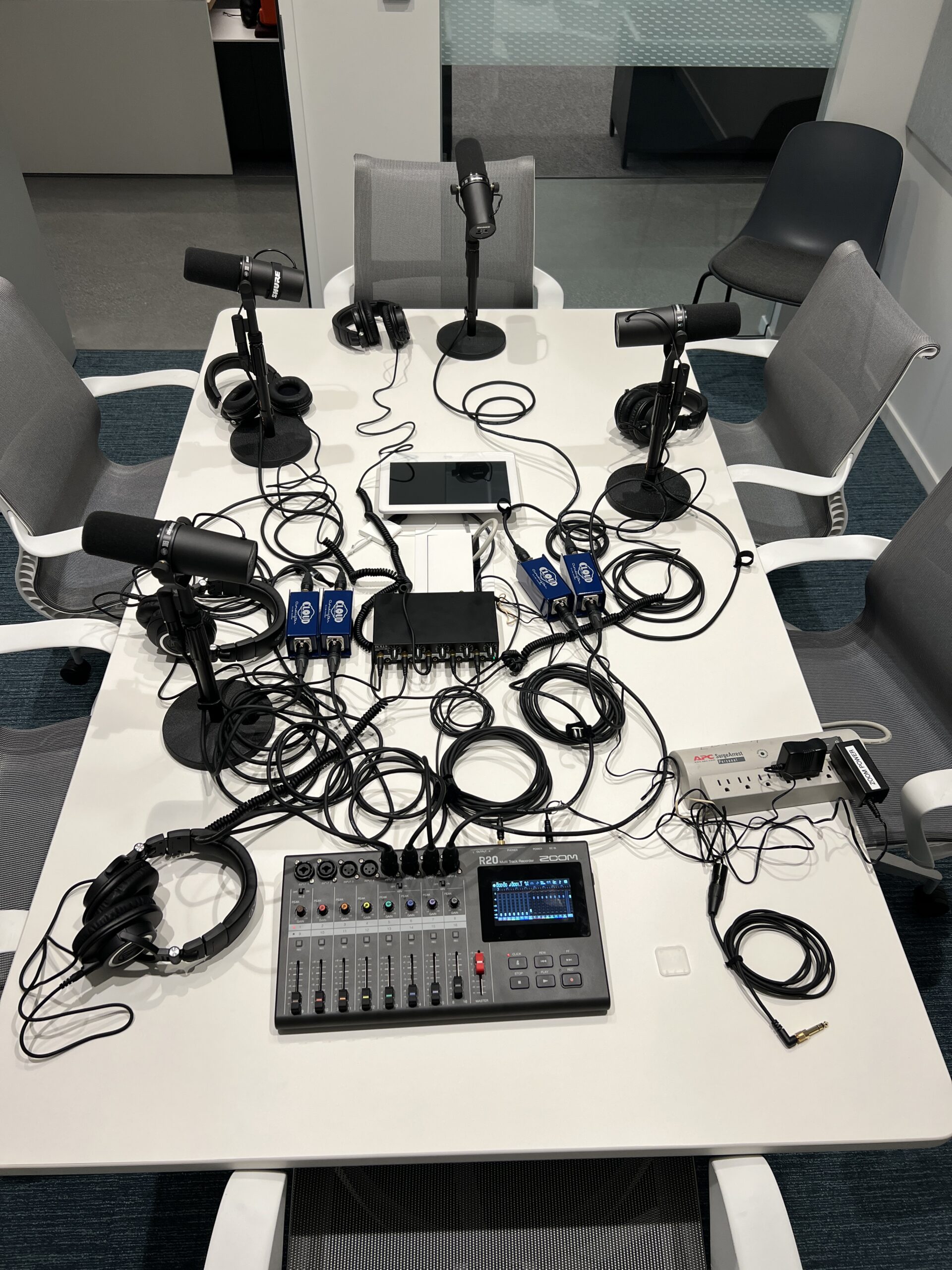
Meet your hosts:
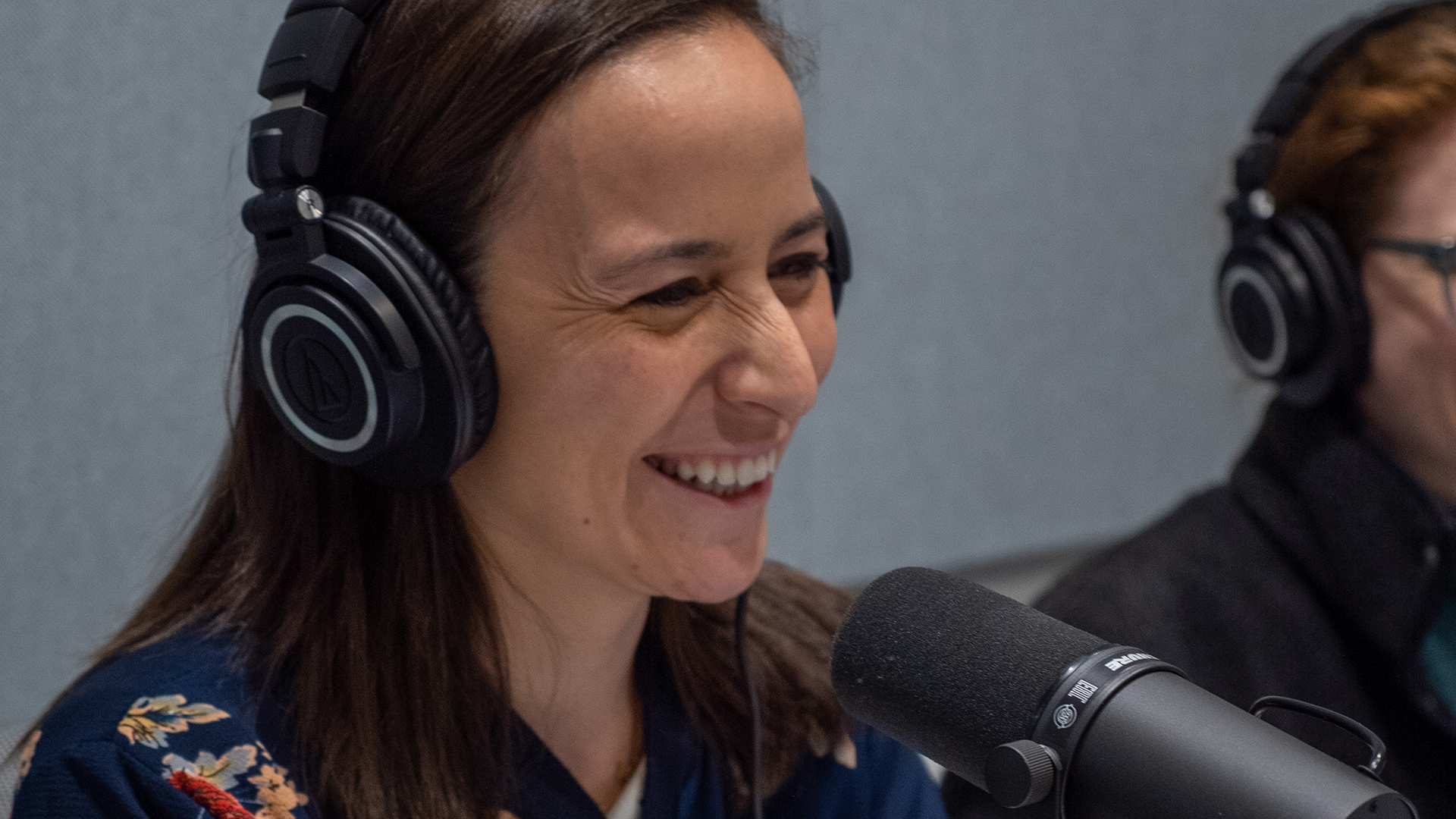
Natasha Steele
Natasha is a young adult cancer survivor, an internist and researcher, and an incoming faculty member at Stanford Medicine.
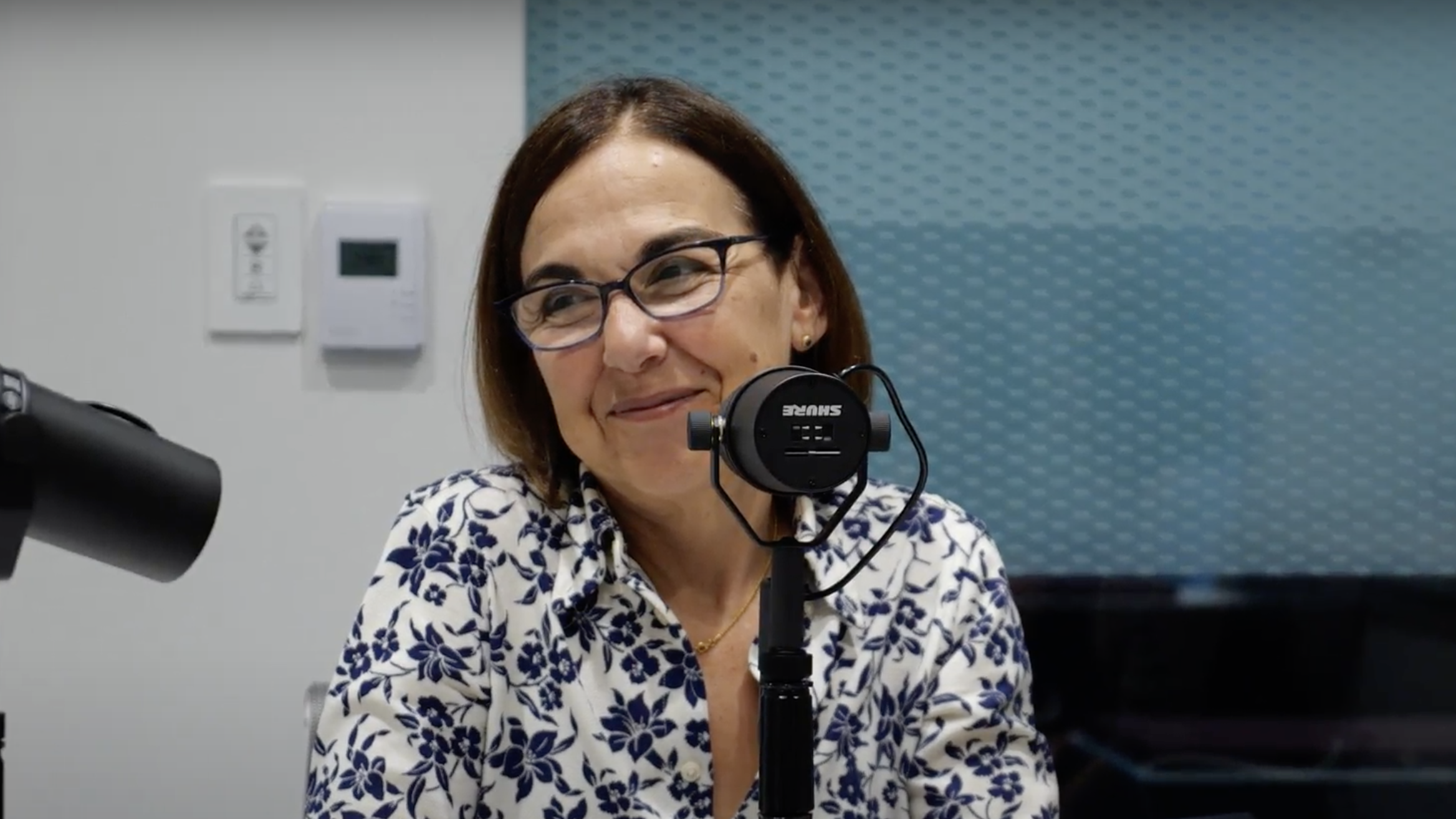
Lidia Schapira
Lidia is the director of the Stanford Cancer Survivorship Program and the executive producer of Health After Cancer.
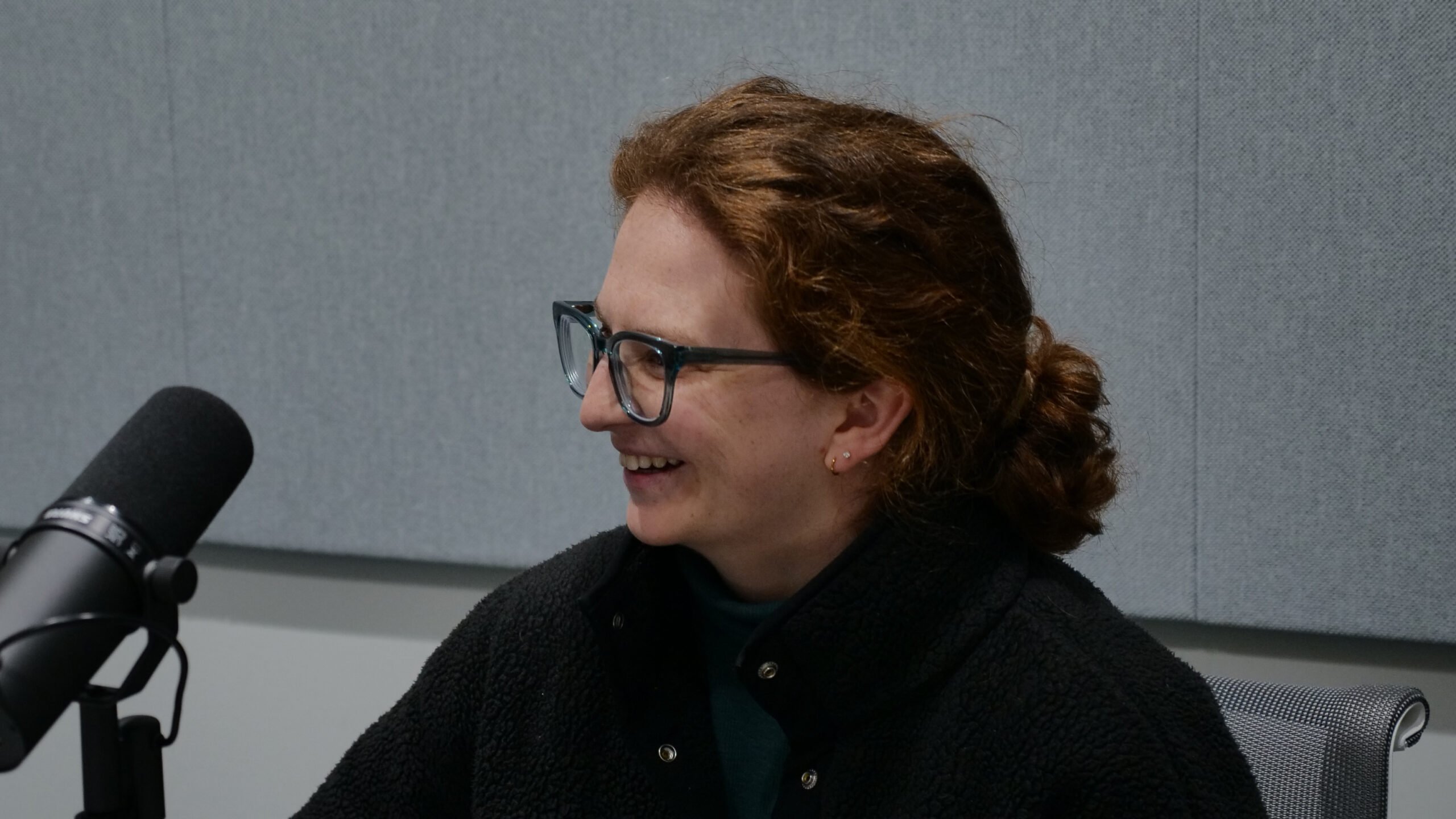
Elle Billman
Elle is a childhood cancer survivor and 2028 MD candidate at the Ichan Medical School, at Mt. Sinai, in New York.


